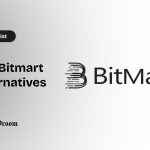Discussions about the necessity of a smooth and streamlined healthcare system were accelerated by Covid-19. Finding and eliminating inefficiencies, reducing duplication, and automating manual processes are all streamlining components. However, despite its size, the healthcare sector is still largely constrained by archaic practices and technologies. This not only exacerbates financial loss for the industry but also endangers the patients’ care. Therefore, streamlining medical processes to provide patients with the best possible care becomes paramount with the rising demand for healthcare services.
Blockchain technology’s inherent security and decentralization bring many practical use cases to the healthcare sector. Blockchain technology emerges as a revolutionary innovation to address various challenges faced in healthcare, including data security and privacy, interoperability, and pharmaceutical supply chain management.
Blockchain in Healthcare
Blockchain technology, which is still in its infancy, is frequently linked to cryptocurrencies and financial transactions. While it’s true that the technology gained notoriety with the publication of Bitcoin’s whitepaper in 2008, peer-to-peer financial applications represent one of the many applications of the technology that powers cryptocurrencies. Blockchain is being gradually adopted by several sectors, including manufacturing, entertainment, and healthcare, to take advantage of its decentralization, improved security, and privacy features.
The industry faces many difficulties due to the multiplicity of stakeholders and the widespread use of electronic medical records. This includes the security of patient health records, the lack of transparency in the pharmaceutical supply chain, and the lack of interoperability between patient health record databases. As a result, there is an urgent need for innovation to address these issues, and this is precisely where blockchain enters the picture.
The individual data blocks that make up the blockchain are organized in a sequential ledger, and each block depends on the one before it to maintain permanence. Since this ledger is shared and publicly viewable to a group of users, any changes must be verified, and hacking attempts are quickly realized and prevented. Therefore, blockchain’s most robust use case in healthcare is for identifying and maintaining an immutable ledger for recording events. The distributed ledger’s security and transparency enable safe, quick, and simple communication, offering an ideal solution for the challenges faced by doctors, patients, and the broader pharma sector.
Healthcare organizations are aware of the many areas where blockchain technology has the potential to revolutionize the industry. A BIS Research report projects that by 2025, the global healthcare market will have spent $5.61 billion on blockchain technology. Another report by Precedence Research goes a step further, estimating that blockchain adoption in the sector reaches around $14.25 billion by 2032.

The Benefits of Adopting Blockchain in Healthcare
Health Data Security
Data breaches in the healthcare sector are becoming increasingly commonplace. Approximately 382,262,109 healthcare records have been exposed or revealed as a result of data breaches between 2009 and 2022, according to a report released by the HIPAA (Health Insurance Portability Accountability Act) Journal. Due to the number of parties that make up the healthcare system, such as hospitals, laboratories, and pharmacies, the safety and accuracy of patients’ healthcare records are at the mercy of several intermediaries.
Blockchain technology can provide a safe and effective way to store and share healthcare data and records by providing a unified platform for managing all pertinent data in a single location. Sensitive health data is perfect for the distributed ledger system of blockchain because it allows for transparent and tamper-resistant data storage. Additionally, blockchain technology enables private and secure data sharing between authorized parties without intermediaries, lowering the risk of data leaks, errors, and illegitimate access.
Furthermore, digital agreements facilitated by smart contracts increase the efficiency of health record management by automating data sharing and providing access controls, guaranteeing that only authorized parties have access to records.
Blockchain enables secure sharing of medical data.
Records of patients can be stored securely on a permissioned blockchain and be made accessible for all relevant healthcare providers.
This can bring down essential wait times and secure confidential information.
— Lisk (@LiskHQ) May 26, 2022Integrated Health Records System
Interoperability in the healthcare industry is crucial to ensuring that patient data can be seamlessly shared and accessed by different healthcare professionals. The healthcare sector is, however, dispersed, with numerous data silos spread across various providers and Electronic Health Record (EHR) systems. As a result, this creates a potential for an incomplete view of patients’ medical histories, which elevates redundant testing and medical risks for the patients.
Blockchain technology, however, emerges as a seamless, lifetime medical record management system. By establishing a decentralized system, the technology enables safe patient data exchange between healthcare providers. All authorized parties have access to an immutable distributed ledger that contains the patient’s data. In addition to making the process simple for patients and healthcare providers, blockchain’s single source of truth in a patient’s medical records also lessens administrative bandwidth. By doing this, medical facilities could devote more time and resources to improving patient care.
Furthermore, because the patient owns the private keys, they not only have access to every new record, such as a doctor’s note or a prescription but also complete ownership of the records and control over how information is shared. Thus, the patient is placed at the center of the healthcare system thanks to blockchain technology.
Traceability of Pharmaceutical Products
Verifying the provenance of pharmaceutical products to confirm their authenticity is a significant challenge for the healthcare sector. The pharmaceutical industry suffers annual losses of approximately $200 billion due to counterfeit drugs. More alarmingly, patients are at very high risk of using fake medications. For instance, according to a Guardian report, fatalities among children receiving fake medicines meant to treat malaria and pneumonia alone amount to 250,000 annually.

The issue of counterfeiting is reduced by using a blockchain-based system to track products from the manufacturing point through each stage of the supply chain process. Read this article to learn how crucial a role blockchain can play in supply chain management. Ultimately, customers can verify the authenticity of products thanks to the transparency and proof of integrity features inscribed into blockchain technology.
Blockchain-based networks like MediLedger that track the movement of prescription drugs are already making waves by enabling businesses to verify the authenticity of medications.
Conclusion
Blockchain technology can increase the efficiency of healthcare systems and processes for patients and medical professionals. While the technology has gained traction through cryptocurrencies in the financial sphere, the healthcare industry is well-positioned to benefit from this disruptive technology.



















